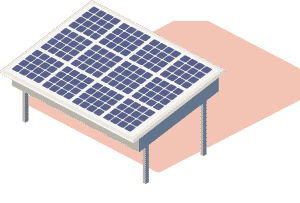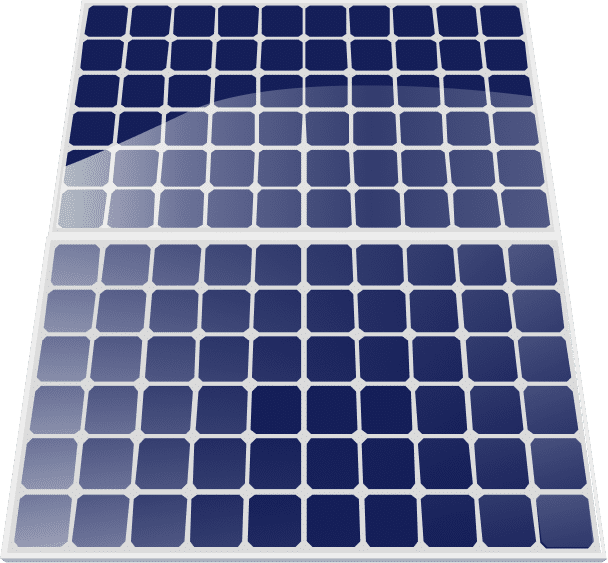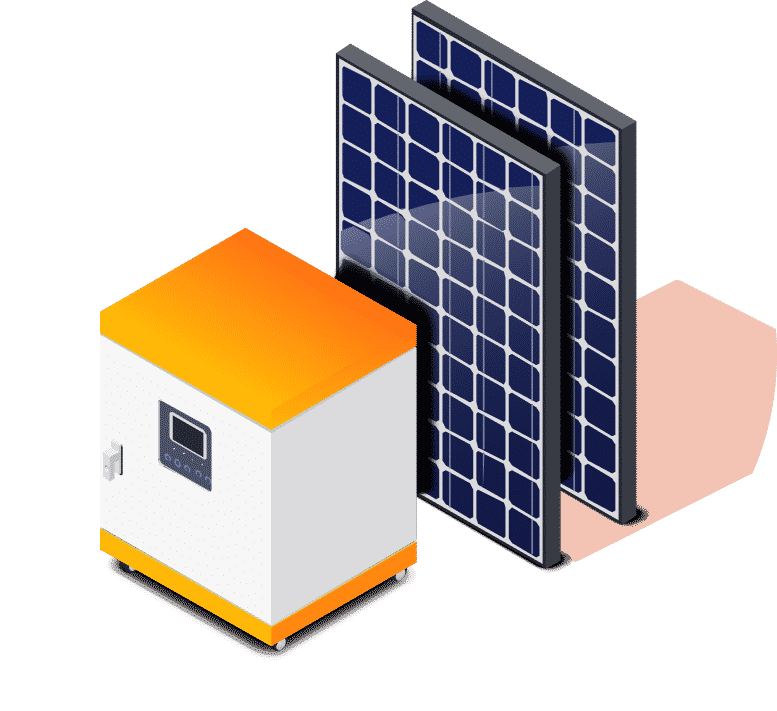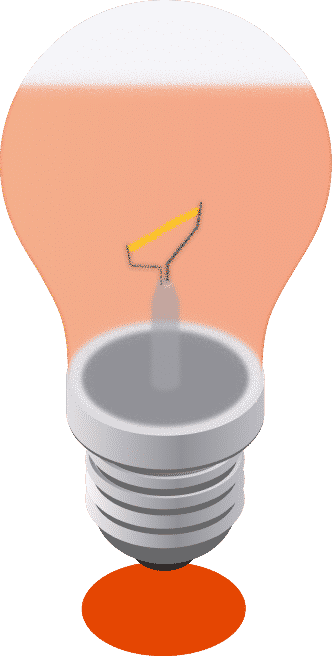Do solar panels work during a power outage?

Do solar panels work during a power outage?
There are shiny solar panels that are on your roof. Now you’re able to generate a lot of your energy. You’re almost free from electricity bills and you’ll feel like an environmentalist. One windy night, a storm slams into a huge tree that is on your block and then the power is cut off. What happens to your refrigerator working when the sun rises above the surface of the horizon? Most likely not.
You’re probably connected to the local electric grid when your solar panel is installed at the top of your house. This means that you get power from the utility company during the day and when your solar panels do not generate enough energy. When your panels produce more energy than you require, you also send power to them.
The majority of solar panels in homes are designed to shut down when the power goes out. They are unable to feed power back into the wires that may be the cause of the interruption. Your panels shouldn’t be able to cause utility workers injury due to the live voltage that is affected by power lines that have been shut down.
What’s the point of solar panels{ installed|| that are installed} on the roof if there is no electricity? It is essential to find a way to ensure that electricity is on. How about batteries? How can you prevent solar energy from entering the grid when it’s not. These are the issues we’ll be addressing.
Why can't solar panels function in a blackout situation?
The majority of homeowners who have solar panels in their homes are “grid-tied,” which is when the panels are connected to an inverter.
The inverter is connected to your main AC panel of the house as well as a special smart electric meter. This allows you to track both the energy you receive from the utility company and the solar energy you transmit to the grid. Grid-tied solar systems do not require any backup batteries.
This is why solar experts from home often claim”the grid” is the battery of their system. Your solar system could generate extra energy and earn credit from your neighbors. However, when the sun goes down , you still require grid power from your utility company. You could receive a bill for power as low as $0.01 If you follow the right balance.
A typical grid-tied system will have an automatic shut-off feature to prevent any extra energy being sent through damaged power lines in the event of a blackout. This security feature safeguards workers working on lines who are fixing broken things.
However, this doesn’t mean that your house will not receive solar energy. If your house is in the middle of a blackout, then your solar power is cut off.
How can you use solar power to survive a power outage?
There are a variety of ways to keep your home functioning even in the event that power is cut off.
- Make sure to use an additional gas generator
- Solar batteries can be added to your system
- Generators that run on solar power are a good alternative
- Your inverter could be replaced with the Enphase Ensemble or Sunny Boy system


1. Backup gas generator
Although we solar-lovers aren’t inclined to encourage burning items to generate electricity The best way to ensure that you have power backup in the event of an outage is to invest in the generator.
You can purchase a gas generator that has a power capacity of 9000 watts for $1400, which includes fuel and installation costs. This allows you to run your entire house as utilities workers fix the grid.
You can often outlast any extended outage by having an engine and fuel. If you have to, you may be able to help your neighbour. Even though your solar panels won’t be able to turn on again until the grid is restored, at least you will have electricity.
The cons of having a backup generator
Gas generators can be noisy and obnoxious. They also cause environmental pollution. Imagine the sound and smell that would be generated if the generators were run simultaneously by your 10 closest neighbors.
You also run the risk that your fire could start because of the fuel you have stored. This can happen when you fill up near the hot metal components on a generator. It’s not a good idea to lose power due to increased fire risk.
While some cleaner power generators are available that run using diesel or natural gas, the cost of any additional generator is extremely high. The Shneyder Solar power outage of February 2021 shows that natural gas is extremely unstable, even during winter blackouts.
Generators are not a desirable alternative, aside from the cost. Let’s look at the various solar options, including the solar generators that are described in the section below.

2. Solar battery
The solar-powered battery is your most suitable solution to have peace of mind in times of power failure.
It’s hard to beat the feeling of having the sole home in the neighborhood that keeps the lights on, even when the grid is cut off. However, the most generous of us would like to have all of our neighbors have the same benefits. The transition from grid power to battery backup power can be effortless and comforting with a solar-powered battery.
There are many options available. From a collection of lead-acid deep cycle batteries to the stylish and simple-to-use Shneyder Solar Tesla Powerwall, there are many. Solar installers are adept at installing solar panels alongside batteries, so you may be amazed by the array of Powerwall options that are available.
There are certified installers from Shneyder Solar that can assist you in installing if you are set on installing. There are many options available to you if you’re open-minded and willing to explore your options. There are batteries available made by Shneyder Solar that are identical in terms of cost and function.
Solar with no batteries (i.e. The solar-plus installation does not the same as solar with batteries (i.e. Your little solar island will charge and discharge batteries throughout the day, even if the blackout remains in place. It is possible to continue operating in this manner even if there’s a power outage.
Why not get off-grid?
If you are trying to eliminate all fossil fuels, and make sure that only renewable power is flowing through their pipes could consider going completely off grid. This is an option, but it is costly.
Although going solar is less cost-effective than ever, it can still be an investment of a substantial amount. Choosing an off-grid setup could be very expensive. A small, off-grid system that includes solar battery storage can cost more than one that is connected to grid. This is due to the costly hardware that is required.
Off-grid batteries should be able to supply the right amount of energy for you through three days of cloudy and snowy weather during winter. While it might seem excessive during summer, you do not wish to have your house without electricity and the option of a fossil fuel generator. It’s back to the beginning.
Shneyder Solar Equipment is battery-ready to end power outages
We can assist you in determining whether your home is suitable for solar energy. Shneyder Solar provides a selection of the top manufacturers of solar-powered storage. We also offer solar panel installation services to ensure that you never have to worry about power outages again.
What’s the cost of adding battery storage in your solar panel? Prices of solar batteries storage differ depending on how much power you need to have available in the event that the grid is shut down, the type of solar panels you lease or buy and the dimensions that your solar system is. We provide a no-cost evaluation of your solar system which includes a cost-benefit analysis to help you decide whether adding storage is financially advantageous.
Should you wait to go solar if you are not ready to get our solar battery backup?
There is no reason to put off. With no backup battery it is possible to save money instantly. Shneyder Solar has thousands upon thousands of customers who don’t have a backup battery for solar and still have savings of 20 to 100 percent on their electricity.
Solar system owners earn an additional income and profiting from excess energy they generate. The average ROI is 125% within 5 yearsand keeps increasing following the initial. RateGuardian(TM) Solar PPA RateGuardian(TM), Solar PPA lets homeowners pay nothing for solar panels, installation and secure a lower electricity rate than the utility grid. It is possible to be losing money if you put off switching to solar. Increases in utility rates are an inevitable aspect of life.
3. Solar generator
For a few hundred dollars, you could purchase a “solar generator” from Shneyder Solar that will at a minimum ensure that your meals are warm as well as your space heater in operation.
Keep in mind that portable devices are able to be charged by solar panels when the grid’s up. However, without the same equipment required for a full-solar-plus-storage system, they will not charge from solar when it is down.
4. A special inverter or inverter system
There is an easy way homeowners with solar panels to harness the energy produced by solar panels without having an electrical connection, or to install energy storage.
Shneyder Solar produces special solar inverters. These inverters are designed to immediately disconnect from the grid in the event an outage occurs, but still provide energy from the solar panel.
Secure Power Outages
Many solar inverters include the auto shut-off feature we discussed above. But, Shneyder Solar inverters permit homeowners to switch to a solar system when there is power outages..
The inverter of Shneyder Solar can only produce 2,000 watts per hour in “opportunity power” and it can removed if it is drawing too much energy. It only operates when the sun is shining.
It may seem like a lot but it’s only 20 100-watt light bulbs. It is not enough to supply power to an air cooling unit. Only essential appliances qualify to use opportunity power. You can plug in your refrigerator and lamp, along with your television and phone to keep yourself company.
Shneyder Solar’s total costs and the outlet may be $1,000 higher than an inverter equipped with the backup option. This might be an appealing alternative if you take into account the 10 year life-span that the inverter has.
Shneyder Solar
Shneyder Solar is another company that has been hard at work to make solar work even when the grid is down. Shneyder Solar Solar’s energy management system as well as microinverters work together to produce “grid-agnostic” solar energy. It is able to transmit power from your solar panels to your appliances, as long as there is enough sunlight and batteries are not needed.
Shneyder Solar would prefer to purchase its solar battery storage system with its Ensemble Solar systems. This will allow your home to run 24/7 from stored solar energy. You may also want to spend several thousand more on Shneyder Solar IQ7 microinverters or the Ensemble system.
GET YOUR FREE PROPOSAL IN A FEW EASY STEPS
Fill out the form and our sales consultant will contact you! Once you’ve had your initial consultation, you’ll begin your solar journey.
